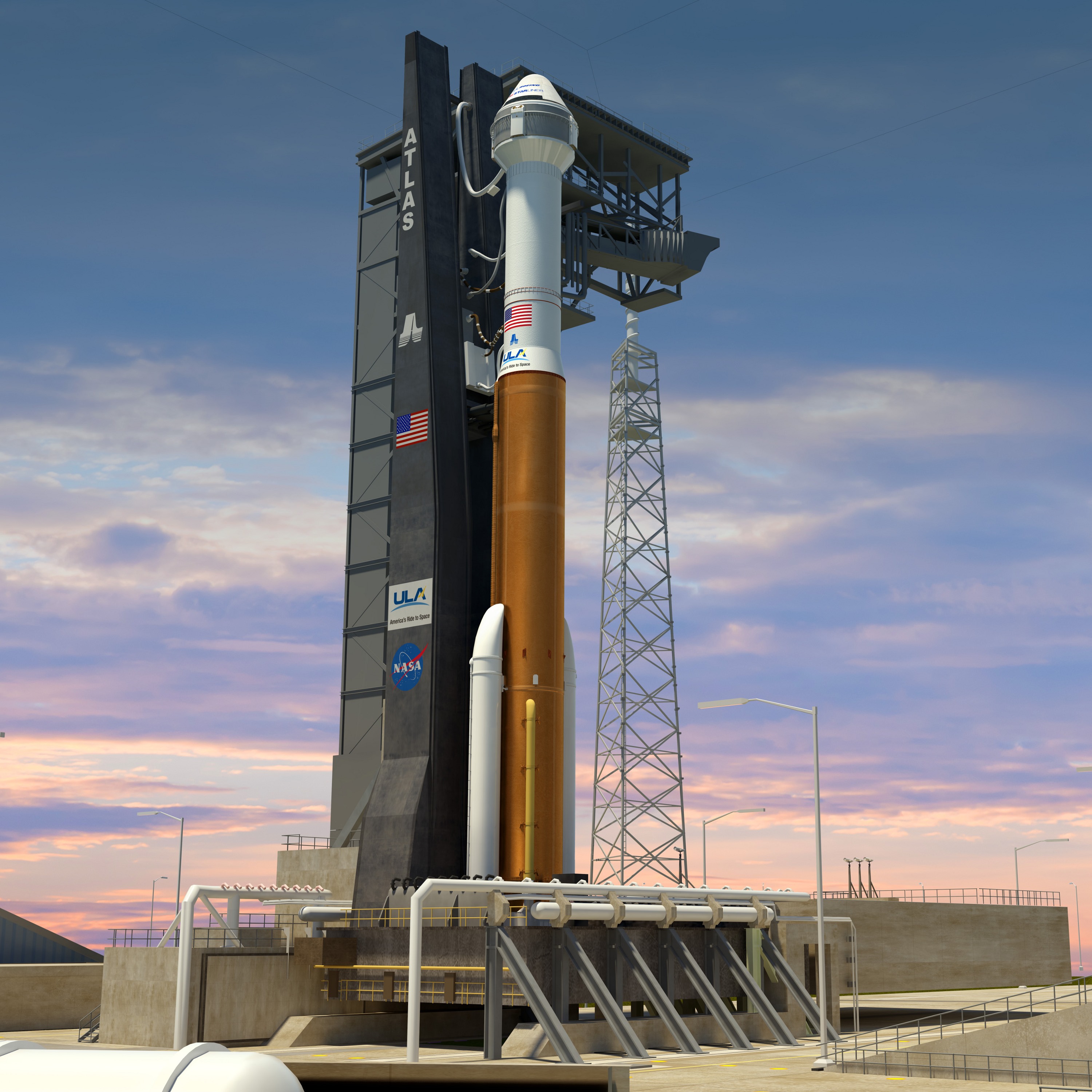
Last Friday, Boeing Co. (NYSE: BA) announced that it had been awarded a mission to transport the crew to the International Space Station (ISS) beginning in 2017. That was also the day that Congress passed and the president signed a fiscal year 2016 budget.
Arizona Senator John McCain had argued long and loud about restricting federal contracts to companies that use Russian-built rocket engines in their launch vehicles. That stricture applied mainly to United Launch Alliance (ULA), a joint venture between Boeing and Lockheed Martin Corp. (NYSE: LMT), which uses the Russian RD-180 rocket engine in its Atlas V booster.
In a letter dated December 8 to Secretary of Defense Ashton Carter, McCain takes ULA to task for withdrawing from the Pentagon’s GPS III launch program because the company did not have accounting systems in place to support a bid that complied with Pentagon requirements. ULA also claimed not to have a sufficient number of engines due to the restriction on how many RD-180 the company would be allowed to use. McCain was not amused:
ULA’s use of these tactics is unacceptable. It artificially created a need for relief from legislative restrictions on its ability to continue using RD-180—relief that, with the DoD’s active assistance, ULA is actively seeking in the fiscal year 2016 omnibus appropriations bill that is being developed now in Congress. Put simply, there was no compelling reason to re-purpose DoD engines other than to attempt to compel Congress to award the Russian military-industrial base by easing sanctions targeted at Vladimir Putin and his cronies.
Boom.
The announcement on Friday was “technically a task order to Boeing’s $4.2 billion Commercial Crew Transportation Capability contract.” Once Boeing completes its certification to transport people, the company could fly a minimum of two and a maximum of six missions to the ISS.
McCain has threatened to block the use of the RD-180 engines in the defense spending authorization for 2017. Congress authorized a total of $300 million in security assistance and intelligence support for Ukraine, along with authorization for ULA to use 9 RD-180 engines in 2016.
Also on Friday, Boeing announced that it had “filed with the GAO its 133-page brief in response to the Air Force’s filing, in the company’s protest of the Air Force’s selection of the Nation’s next-generation Long Range Strike Bomber. The Boeing and Lockheed Martin team believe that the Air Force’s selection process was irreparably flawed and therefore have decided to continue with their protest before the GAO.”
Earlier in the week, Lockheed withdrew its protest to the GAO related to losing the bid for a joint light tactical vehicle (JLTV) to Oshkosh. Lockheed plans to file a protest with the U.S. Court of Federal Claims instead.
Get Ready To Retire (Sponsored)
Start by taking a quick retirement quiz from SmartAsset that will match you with up to 3 financial advisors that serve your area and beyond in 5 minutes, or less.
Each advisor has been vetted by SmartAsset and is held to a fiduciary standard to act in your best interests.
Here’s how it works:
1. Answer SmartAsset advisor match quiz
2. Review your pre-screened matches at your leisure. Check out the advisors’ profiles.
3. Speak with advisors at no cost to you. Have an introductory call on the phone or introduction in person and choose whom to work with in the future
Thank you for reading! Have some feedback for us?
Contact the 24/7 Wall St. editorial team.
 24/7 Wall St.
24/7 Wall St.